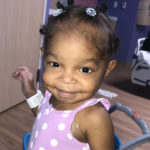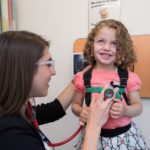Saving Laila: Family travels from Egypt for answers about rare genetic condition
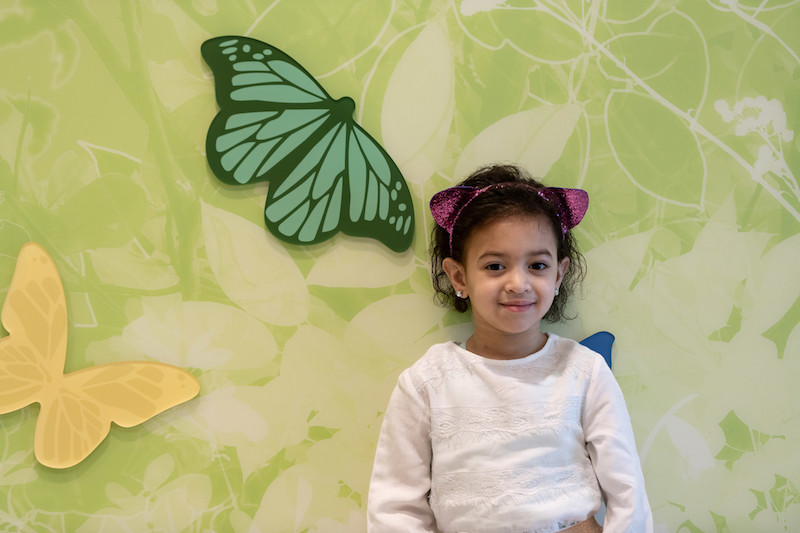
When Aya Hendawy got off the plane that had brought her from Egypt to Boston, she didn’t linger in the airport or consider which tourist attractions to visit. Instead, she took a car directly to the Emergency Department at Boston Children’s Hospital, her daughter Laila in tow. “I asked them to please try to save her,” she remembers.
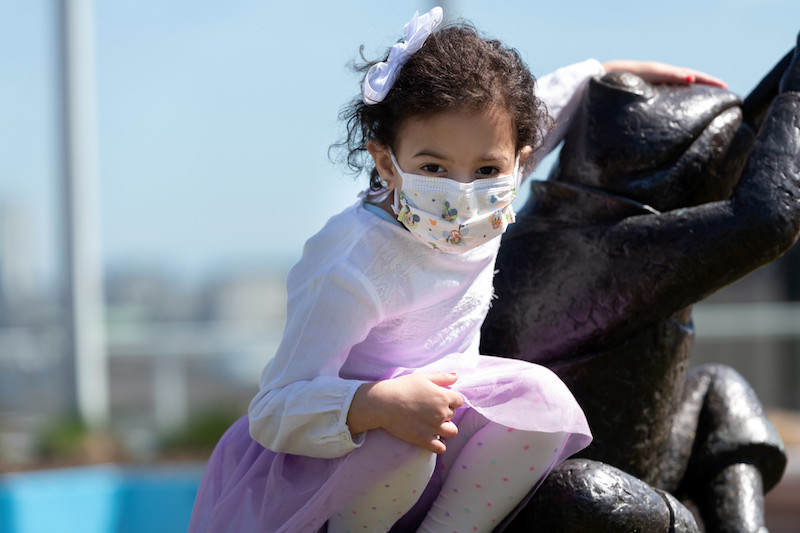
A desperate trip
There was good cause for her desperation. Laila, then about 14 months old, was incredibly ill. Her symptoms were vague, but worrisome: She had severe diarrhea, wasn’t growing, and had trouble sleeping. By the time she arrived in Boston, she had been misdiagnosed nine times by physicians in her home country. After being treated incorrectly with steroids, her bones were so weak that she broke both of her legs.
And there was another reason for Aya’s concern. Before Laila was even born, one of her older sisters had died when she was a baby. “We knew she had a lot of health problems, but she never received the right care,” says Aya. “I didn’t want to lose Laila too.” When a friend in the U.S. told the Amer family about Boston Children’s, Aya knew she had to act.
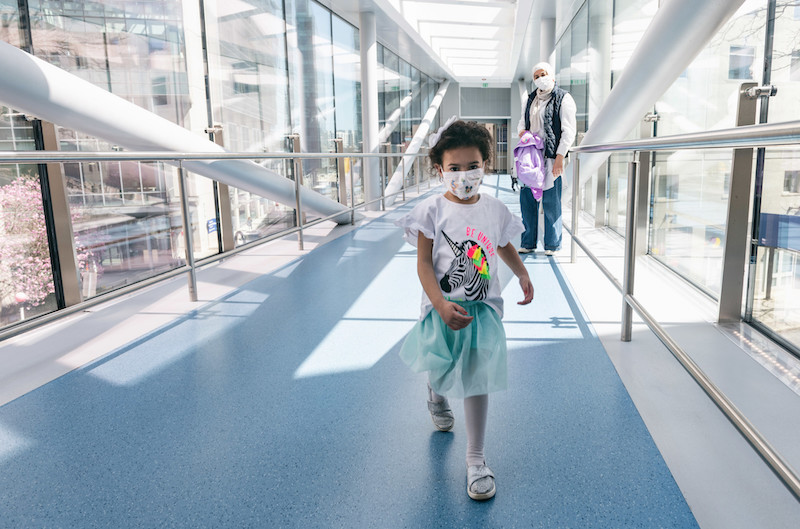
A ‘big answer’
Laila stayed at Boston Children for three months, where she underwent a full evaluation. Tests ultimately revealed that she has trichohepatoenteric syndrome. This extremely rare genetic condition — with fewer than 100 cases reported worldwide — primarily affects the hair, liver, and intestines. Trichohepatoenteric syndrome can cause chronic diarrhea, liver disease, and other complications that can be life threatening if left untreated.
“It feels good to finally have an answer — and it’s a big answer,” says Aya. “We know there’s no cure, but we also came here because we know Boston Children’s is the best for rare and complex conditions.”
Indeed, Laila has an entire team of clinicians dedicated to caring for her. They run the gamut of specialties, including Dr. Lissette Jimenez (co-director of the Congenital Enteropathy Program), gastroenterologist and director of the Home Parenteral Nutrition Program, Dr. Alexandra Carey, dietitian Megan Gray, immunologists Dr. Daniel Shin and Dr. Christina Yee, and pediatrician Dr. Arda Hotz. Thanks to home parenteral nutrition, she has gained weight and is growing. Regular FibroScans with Drs. Christine Lee and Osama Baghdadi help monitor her liver health. She’s also part of ongoing research studies led by program’s other co-director, Dr. Jay Thiagarajah, to help researchers learn more about her condition.
“Laila has to be followed by a lot of teams,” says Aya. “Here, they’re all connected and they all know each other. They treat her like an important human being, not just a patient.”
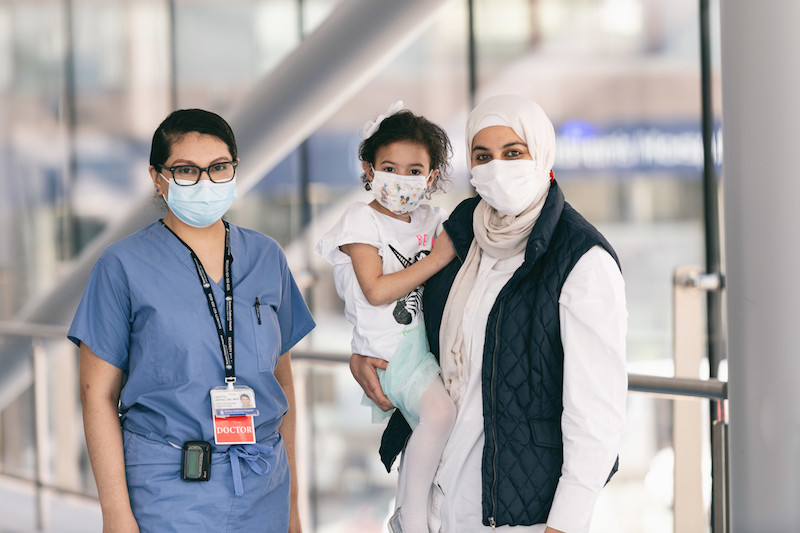
Sacrifices — but no regrets
The Amer family is well of aware of the sacrifices they’ve made. Laila’s father, Karim Amer, still works in Egypt and travels to Massachusetts several times a year to see Aya, Laila, and Laila’s other sister, Jude. Aya left a successful career as a teacher to travel for Laila’s care. “I don’t regret those decisions,” she says. “I’m her mom, and I did what I needed to do.”
And those choices have paid off for Laila. Although there are still many unknowns surrounding her health, she is thriving. With her bones no longer weakened by steroids, she loves to run, jump, and dance — and wants to take ballet lessons. A kind, smart little girl, she also enjoys drawing and will start preschool this fall.
“On our flight here, we were counting the minutes until the plane landed and we could get to Boston Children,” Aya remembers. “Now, when Laila is really sick, I may not know what will happen, but I know that the doctors here will take good care of her. That’s why we call it our second home.”
Learn more about the Congenital Enteropathy Program.
Related Posts :
-

Going 'all in' for Khori: New hope for congenital enteropathy
Khori LeBlanc is “one of the sassiest and sweetest kids you’ll ever meet,” says her mom, Bryanna Black. Her ...
-

Ellery’s story: The mystery of opsoclonus myoclonus syndrome
Ellery was a normally developing 2-year-old when her skills took a dramatic shift backwards last winter. “She started wobbling when ...
-

'Finally in the right place': Peyton’s journey to Boston
When Peyton Miklas comes to Boston Children’s Hospital for an appointment, she isn’t just seeing Dr. Belinda ...
-

‘An easy decision’: Finding care for short bowel syndrome
Allie DeRienzo loves to dance, sing and play with her big brother, switching from the pink-and-purple cartoon world of ...


